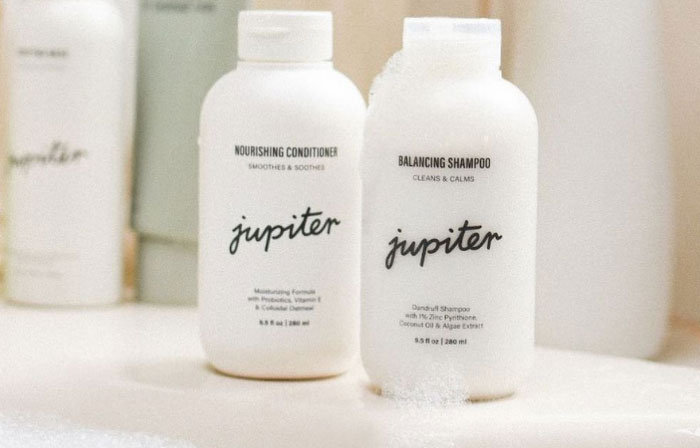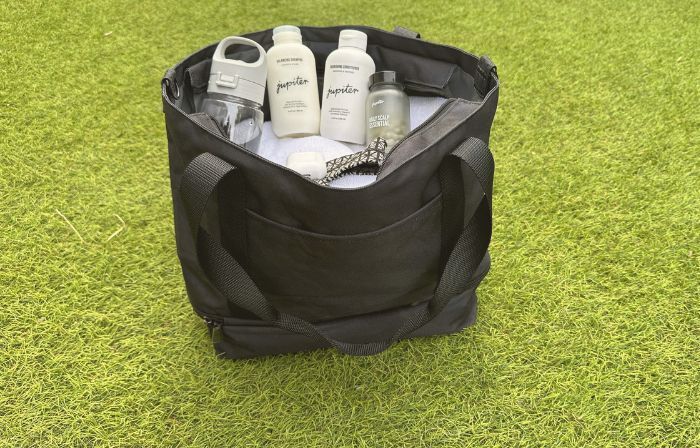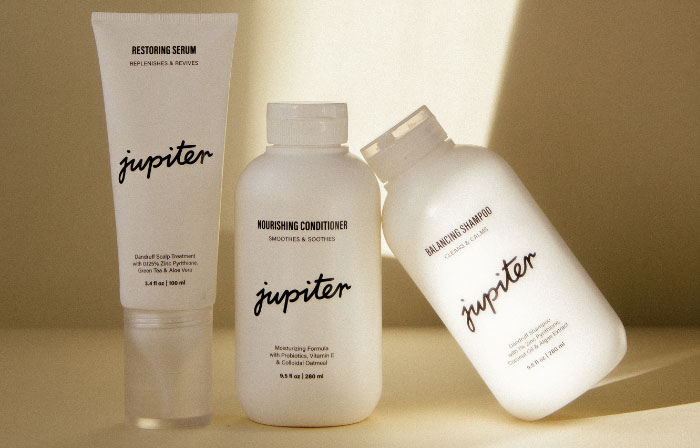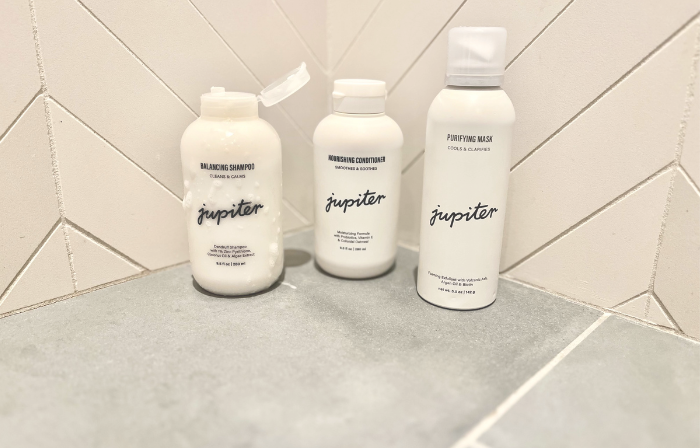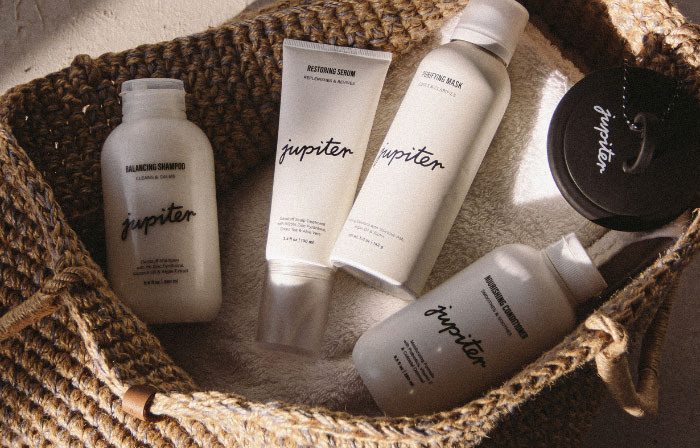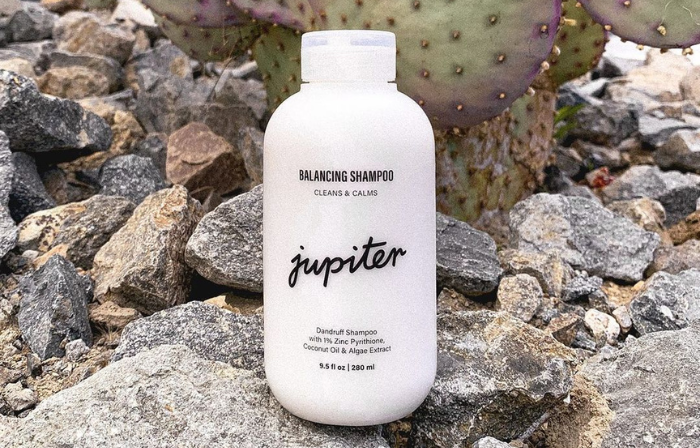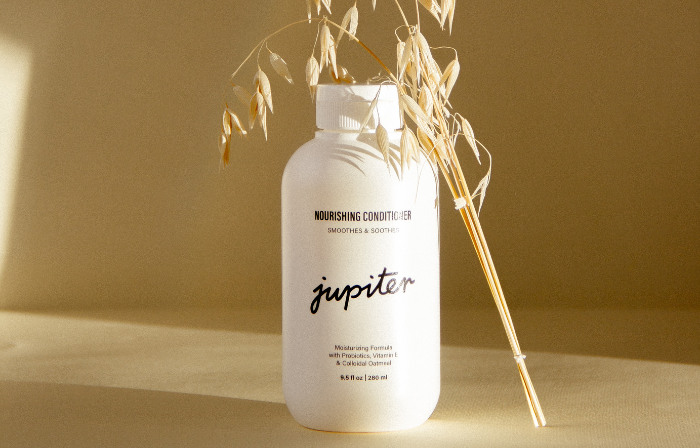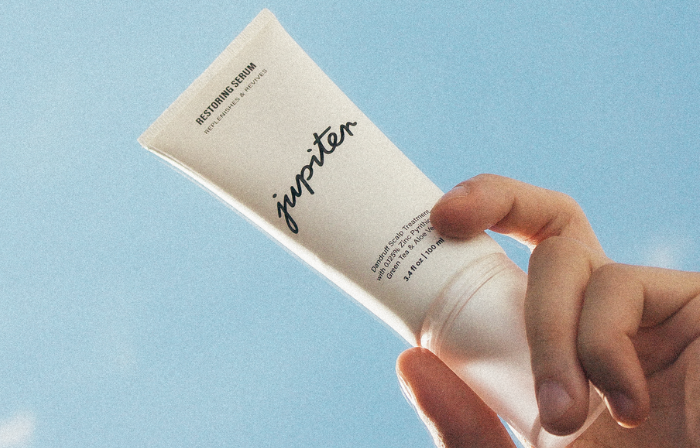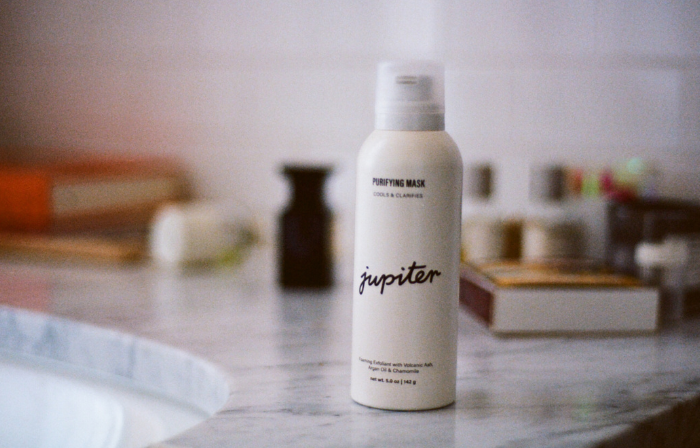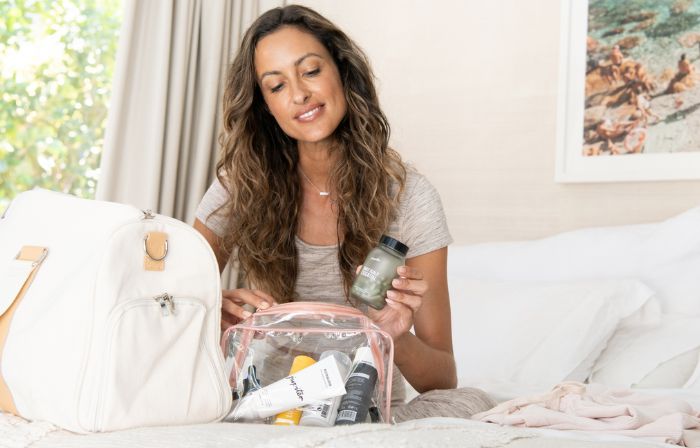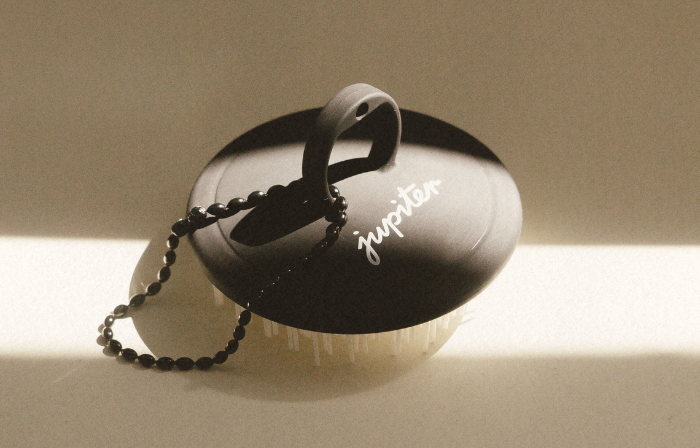We know, we know. Adding another step to your hair care routine feels like a lot. But today, we’re going to talk about why deep conditioning is the extra step you need to give your hair and scalp extra vibrance and life.
You’ve probably heard of deep conditioning before, but you might be confused about what it actually means. The truth is there is no hard and fast definition for deep conditioning. There are several options available, and some do different things.
Some deep conditioners are focused on detoxing the scalp, while others are focused on healing chemically damaged hair. Generally speaking, though, deep conditioner is a hard-working moisturizing agent that goes further than your standard conditioner in hydrating hair strands and the scalp.
If you’ve ever found yourself staring at someone’s hair and wondering how it has so much bounce and life, we’re willing to bet that person regularly deep conditions. It’s a bit of a game-changer. But how often should you deep condition, and what’s the right application process for your hair type? Keep reading for all the details.
What Is Deep Conditioning, and What Does it Do?
Let’s start with some basics, covering what deep conditioner is and what it can do. A formula for a deep conditioner will vary from brand to brand, but deep conditioners generally contain humectants, which are moisturizing agents that attract and trap water.
Why is water important for hair health? Allow us to count the ways!
Moisture
Moisture is a key element when it comes to the health of your hair and your scalp. Think about the skin as a barrier between the world around us and our body. When the skin is weakened, whether due to chemical irritation, sun damage, infection, or stress, its ability to retain water and moisture is weakened. Without water, the skin becomes dry and rough. A dry scalp can lead to damaged hair follicles, which, you guessed it, leads to weaker hair, thinning, and breakage. Maintaining moisture is pivotal in taking care of the hair you have now and encouraging the healthy growth of hair you’ll have later.
Protection
In addition to moisture, deep conditioners offer protection. Dyeing your hair is perfectly normal, and a great way to get your desired hairstyle and color. That said, bleaching your hair has been shown to cause significant oxidative damage in the cuticle and cortex of the hair and protein loss.
Weakened hair strands are prone to breakage and split ends. Something as simple as brushing your hair or wearing a ponytail can wreak havoc on weak hair. Deep conditioners help seal the bonds on your hair strands, preventing breakage and split ends. By improving the barrier between your hair and the outside world, deep conditioners improve your hair strands' elasticity, bringing us to our next point.
Vibrance
If nothing else, consider deep conditioning your hair because it will make it look healthier, bouncier, and more vibrant. We know sometimes it’s hard to quantify something like moisture and protection, but believe us that when you see how beautiful your hair looks after regular deep conditioning, you’ll be sold. Healthy, happy hair is moisturized hair.
How To Figure Out Your Deep Conditioning Routine
So now that we’ve hopefully sold you on the many merits of deep conditioning let’s get into some questions to ask when it comes to building your routine.
Deep conditioner shouldn’t replace your regular conditioner, which already helps nourish the scalp and hydrate the hair strands. Think of it instead as a supplement.
Understanding Your Hair Texture
When figuring out your routine, it’s important first to understand the texture of your natural hair. If you have fine hair, sebum (the scalp’s natural oils), and moisturizing agents probably have an easier time moving down your hair strands. In which case, you want to deep condition less often — around twice a month. On the other hand, if you have thick hair, your hair strands may require more moisture, meaning you can try deep conditioning weekly. Generally speaking, you don’t need to deep condition more than once a week. The scalp does have a system of moisturizing itself, and you don’t want to throw it out of whack.
Using a deep conditioner on clean hair allows it to truly soak into the scalp and hair strands...
Understanding Your Curl Pattern
Curl patterns can also greatly affect how moisturized hair strands are. Your curl pattern is how your hair naturally dries. Straight hair is considered type one hair, while curly hair is considered type four. Wavy hair and looser curls fall somewhere in between.
Within each category, there are subdivisions in which you can classify your hair by how tightly its curl is coiled. These classifications are imperfect, but they help us get closer to understanding what our hair needs. For example, more often than not, people with very curly hair have drier hair, as it’s more difficult for conditioner and sebum to travel to the ends of the hair. If you have curlier hair, you should consider upping your deep conditioning routine to once a week, to give your hair more bounce and life.
If you have straighter hair, you should consider deep conditioning less often, as you don’t want your hair to be weighed down and flat. Once or twice a month ought to do the job.
Understanding When and Where to Apply
A key element of your deep conditioning routine is understanding the right way to apply the product. Unless your deep conditioner bottle instructions (always follow instructions!) say otherwise, you want to apply deep conditioner to dry, clean hair. Using a deep conditioner on clean hair allows it to truly soak into the scalp and hair strands rather than sitting on top of oil, dirt, or product build-up.
Once you’ve applied your deep conditioner, focus on the ends of your hair. Depending on how oily or dry your scalp naturally is, you can skip your scalp entirely or gently work the deep conditioner into your roots.
In any case, most people want to improve the look and feel of their ends, and for good reason.
The sebum from your scalp can only travel one to four inches down the hair strand, meaning the longer your hair is, the less likely it is that the ends are receiving moisture from the scalp. Focus your deep conditioning treatment on your ends, making sure they’re fully saturated. As far as how long you should keep the deep conditioner in your hair, it varies from product to product. Some say overnight, while others say about an hour. Try rinsing it with cool water if you’re using a rinse-out deep conditioner rather than a leave-in conditioner. Cool water makes your hair cuticles contract and seals their barriers, locking in the moisture from the conditioner. It might be a little chilly, but trust us, it’s worth it.
Last Thoughts on Deep Conditioning Your Hair
When building out your hair care routine, it’s important to give your hair time to react. Consistency is key.
Is it feeling flat or oily? Is your scalp irritated or greasy? Asking yourself these questions will help ensure you’re using the right product. Adjust your routine or products based on how you answer them. When it comes to products, look for natural and gentle ingredients which are safer for the hair and scalp. No matter what, your deep conditioner should never include parabens or phthalates. While deep conditioning your hair can be a key step in maintaining moisturized locks, it’s important to remember that healthy hair always starts at the scalp. Ensure you are maintaining a balanced and cleansed scalp to support a healthy environment for your hair with Jupiter’s line of effective and clean scalp care products.
Packed with scalp-healthy ingredients like coconut oil, niacinamide, and squalane along with the flake-fighting active ingredient Zinc Pyrithione, your scalp microbiome will thank you and your hair will look and feel its best.
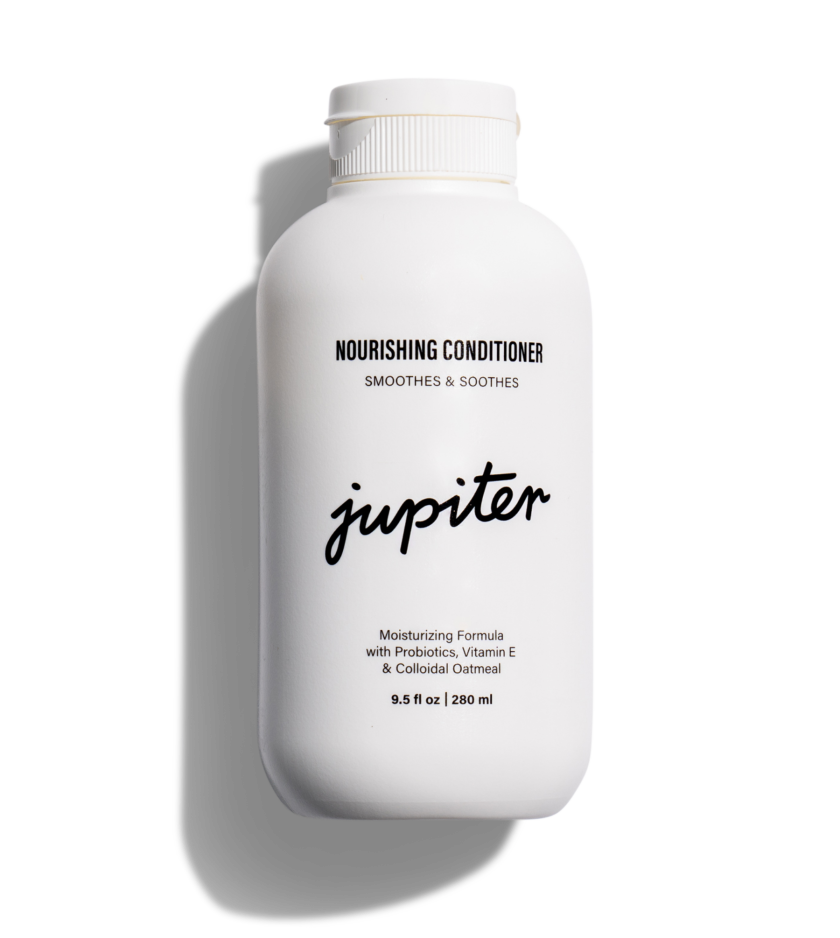
All scalps can use a little TLC. Our daily conditioner is packed with luxe ingredients that’ll leave your hair feeling silky fresh, while working behind the scenes to soothe and moisturize. With notes of mint, vanilla, sage, and lavender, it’s a conditioner not of this world. Use after washing with our Balancing Shampoo.
